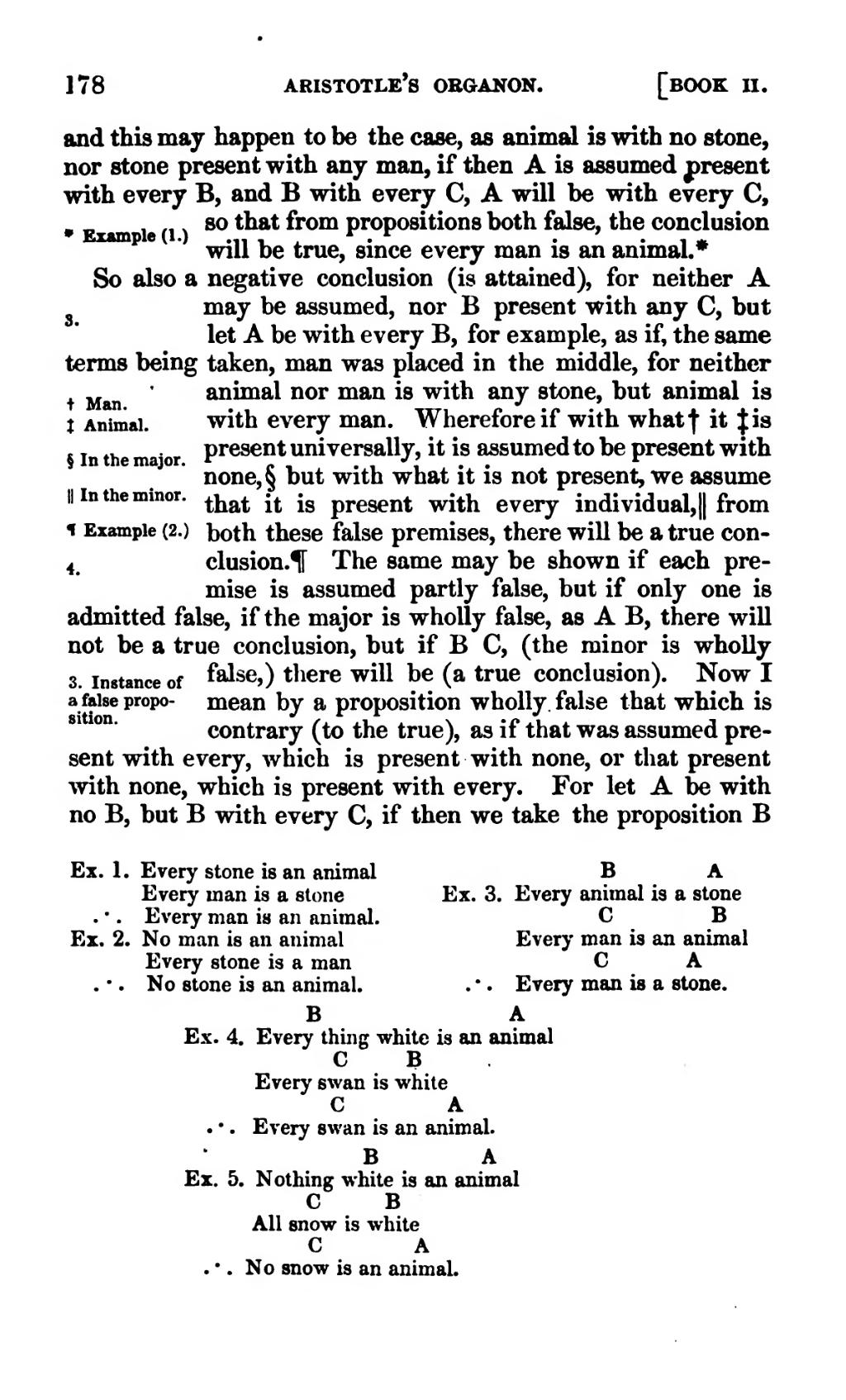and this may happen to be the case, as animal is with no stone, nor stone present with any man, if then A is assumed present with every B, and B with every C, A will be with every C, so that from propositions both false, the conclusion will be true, since every man is an animal.
So also a negative conclusion (is attained), for neither A may be assumed, nor B present with any C, but let A be with every B, for example, as if, the same terms being taken, man was placed in the middle, for neither animal nor man is with any stone, but animal is with every man. Wherefore if with what it is present universally, it is assumed to be present with none, but with what it is not present, we assume that it is present with every individual, from both these false premises, there will be a true conclusion. The same may be shown if each premise is assumed partly false, but if only one is admitted false, if the major is wholly false, as A B, there will not be a true conclusion, but if B C, (the minor is wholly false,) there will be (a true conclusion). Now I mean by a proposition wholly false that which is contrary (to the true), as if that was assumed present with every, which is present with none, or that present with none, which is present with every. For let A be with no B, but B with every C, if then we take the proposition B
